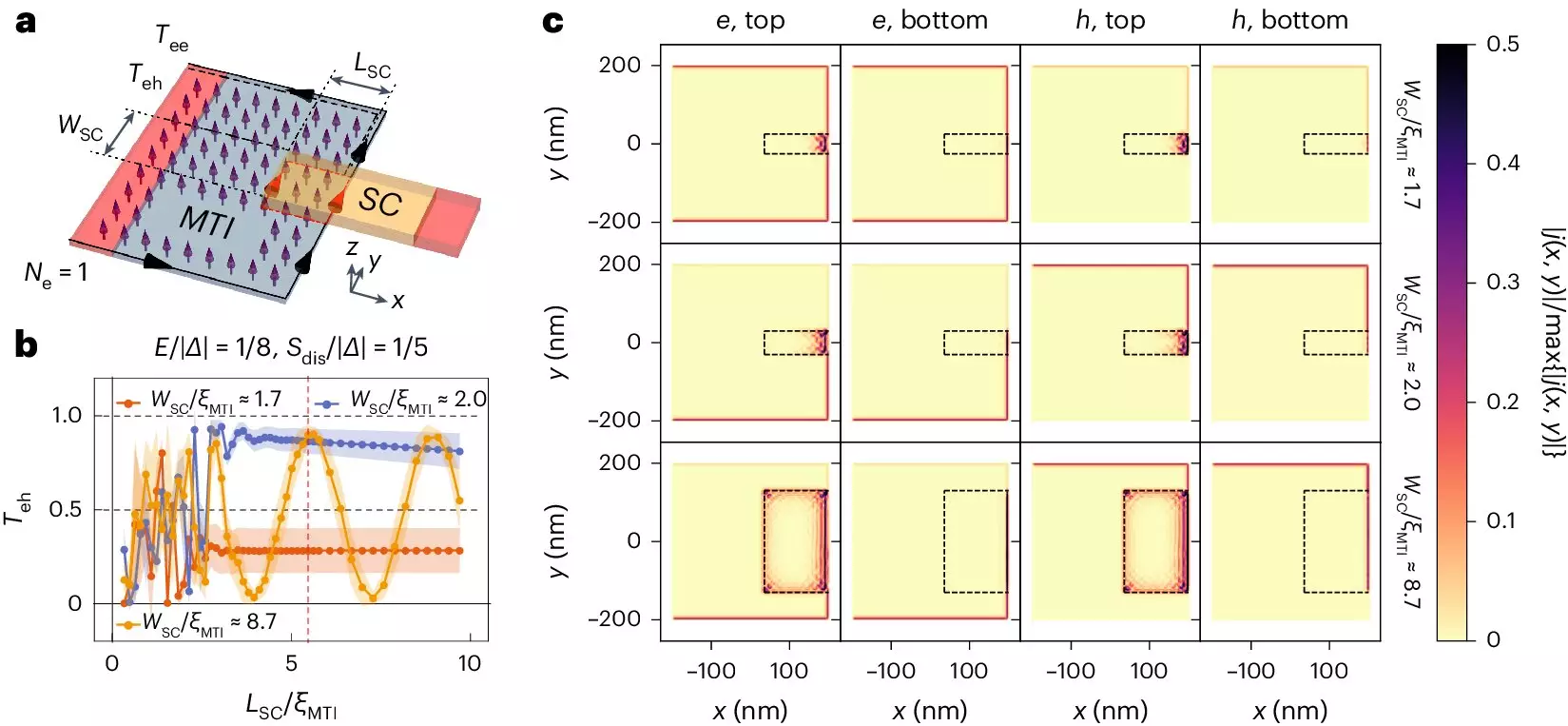

In a groundbreaking study published in Nature Physics, a team of experimental physicists from the University of Cologne has achieved a major breakthrough in the field of quantum computing. By inducing superconducting effects in quantum anomalous Hall insulators, they have opened up new possibilities for exploring advanced quantum states and potentially revolutionizing the development of quantum computers.
Superconductivity is a phenomenon in which electricity can flow without resistance in specific materials. This team of physicists has demonstrated that it is possible to induce superconducting correlations in materials with unique edge-only electrical properties. By combining superconductivity with the quantum anomalous Hall effect – which causes zero resistance confined to the edges of a material – they aim to create topologically protected particles called Majorana fermions.
Anjana Uday, the lead researcher on the project, outlined the methodology used in the study. By utilizing thin films of quantum anomalous Hall insulators connected to superconducting electrodes, they were able to induce chiral Majorana states at the material’s edges. This resulted in a phenomenon called crossed Andreev reflection, allowing the detection of induced superconductivity in the topological edge state.
Gertjan Lippertz, a postdoctoral fellow in the research group, highlighted the significance of their achievement. Despite many attempts by other research groups over the past decade, this team was the first to successfully induce superconductivity in quantum anomalous Hall insulators. The key to their success lay in the meticulous control of film deposition, device fabrication, and ultra-low-temperature measurements – all performed in the same laboratory.
The team from the University of Cologne collaborated with researchers from KU Leuven, the University of Basel, and Forschungszentrum Jülich to support their experimental findings. The joint efforts within the Cluster of Excellence Matter and Light for Quantum Computing (ML4Q) provided the necessary theoretical support for this breakthrough.
The discovery of induced superconducting effects in quantum anomalous Hall insulators opens up new avenues for future research in quantum computing. The next steps involve confirming the emergence of chiral Majorana fermions and exploring their exotic properties. The potential applications of topological superconductivity and chiral Majorana edge states could lead to more stable and efficient quantum computers, less susceptible to decoherence and information loss.
The research conducted by the team of experimental physicists at the University of Cologne represents a significant advancement in the field of quantum computing. Their success in inducing superconductivity in quantum anomalous Hall insulators paves the way for future breakthroughs in the development of topologically protected quantum technologies.
In the realm of software development, the ability to swiftly and accurately address bugs is…
The realm of quantum computing and communication is not just an abstract dream anymore; it…
In a remarkable leap for the field of material science, a collaborative research initiative has…
Throughout Earth's vast history, our planet has endured five major mass extinction events that reshaped…
Rainfall is a vital element of our planet’s hydrological cycle, yet many aspects of its…
On a night when the universe aligns, a mesmerizing phenomenon awaits: the appearance of the…
This website uses cookies.